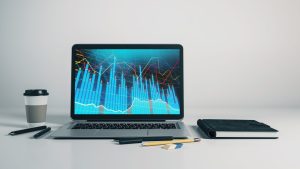
In the exciting world of trading, you’re often faced with a tough choice: whether to rely solely on your own instinct and expertise or to heed the signals from seasoned traders and established market gurus. This article aims to enlighten you about the pros and cons of both approaches. Get set to explore, analyze and comprehend the nuances of independent trading versus following others’ signals, and ultimately make an informed decision that suits your trading style and financial goals best.

Understanding Independent Trading
Trading in the world of finance can take many forms. Today, we’re delving deep into the realms of independent trading. Its premise is straightforward — you make buying or selling decisions based on your own research and understanding of the market.
Definition of independent trading
Independent trading is when a trader, whether an individual or an organization, engages in trading activities, devoid of external influences or guidance. It’s all about relying on your personal assessments, analyses, and interpretations of the market trends.
Pros of independent trading
Independent trading comes with several advantages. Chief among these is the fact that you have total control over your trading decisions. This means, you set your pace, build your strategies, and determine your risk level. There’s also a wealth of knowledge to gain as you learn the intricate mechanisms of the market.
Cons of independent trading
However, like every other thing, independent trading isn’t without its drawbacks. The major one being the high level of responsibility it requires. As an independent trader, you bear the full weight of your trading actions, from losses to gains. It can also be quite time-consuming considering the need for continuous market research and analysis.
Ideal situations for independent trading
Independent trading might be a good fit if you cherish autonomy and have adequate time for extensive trading-related research. Equally important, it suits individuals who are willing to learn from their mistakes and expand their market knowledge over time.
Understanding Trading Based on Someone Else’s Signals
Let us now shift gears, head over to the other side of the trading landscape — trading based on someone else’s signals.
What it means to trade based on signals
Trading based on signals involves following a set of buy and sell directives from a third party, often termed ‘signals’. These signals are essentially tips derived from rigorous market analyses conducted by professional traders or automated systems.
Pros of following someone else’s signals
Signal-based trading presents its advantages. It can save a huge amount of time usually spent on market analysis since buy/sell signals are provided essentially ‘ready-made’. If the signal source is credible, it could significantly enhance trading success, and help you learn by observing their trading strategies.
Cons of following someone else’s signals
However, trading based on someone else’s signals isn’t all sunshine and rainbows. It inherently demands dependency on the signal provider, which could be risky if their analyses are off track. It’s also possible the style used by the signal provider may not perfectly align with your risk tolerance or investment goals.
Ideal situations for following signals
Signal-following might be ideal if you lack the time required for rigorous market analysis but still want to trade. It could also be beneficial for beginner traders who wish to learn from experienced traders or wish to test the waters with some level of safety net.
Key Differences Between Independently Trading and Following Signals
Understanding their differences is fundamental to making an informed choice between independent trading and following signals.
Difference in decision making process
The starkest difference lies in the decision-making process. Independent trading rests on personal judgments, while signal-following is about accepting another’s judgments.
Difference in risk factors
The risk profiles also contrast. With independent trading, the associated risks align directly with your action and analysis. Conversely, the risks with signal-following are tied to the reliability and accuracy of the signal source.
Difference in potential returns
Lastly, potential returns can also differ. Independent trading allows for unlimited potential if you’ve mastered the market, while signal-following only lets you partake in the profits of the trades suggested.

Assessing Your Trading Skills and Knowledge
A key determinant for becoming an independent trader or signal follower lies in evaluating your trading skills and knowledge.
Importance of personal evaluation in trading
Personal evaluation is crucial in determining if you’re making the right decision for your trading career. It helps you accurately gauge your risk tolerance, assess your technical knowledge, and determine which trading style best suits you.
How to assess your own trading knowledge
Assessing your trading knowledge involves understanding how financial markets work, your ability to read and interpret charts, and your grasp of trends and indicators. You might consider taking financial literacy tests and getting honest feedback from seasoned traders to gauge where you stand.
How to assess your trading skillsets
As for trading skills, check your ability to stay cool under pressure, make informed decisions swiftly, conduct rigorous market analysis, and effectively manage risks. It’s also crucial to evaluate your level of patience and discipline as they significantly influence trading success.
Understanding The Risks Associated with Trading
Trading, independent or signal-based, isn’t without risks. It’s paramount to understand them, as it helps mitigate potential losses.
The inherent risks of independent trading
With independent trading, risks primarily arise from market volatility, inadequacies in market knowledge, and potential for emotional decisions. Risks could also stem from ineffective trading strategies or the absence of a well-defined risk management protocol.
Risks in following someone else’s signals
As for signal-following, the primary risk emanates from dependency on an external entity. If their analyses are poorly made, it could lead to poor trading decisions. There’s also a risk of delay — getting a trade signal late could affect entry and exit points.
Ways to mitigate trading risks in both strategies
Key to mitigating trading risks include conducting adequate research, constantly updating market knowledge, practicing with demo accounts, setting stop-loss orders, and maintaining emotional control over trading decisions.
The Importance of Adequate Research in Trading
Whether you’re trading on personal intuition or guided signals, the importance of research can’t be overstressed.
The role of research in independent trading
For independent traders, research is part and parcel of trading. It involves studying market trends, understanding technical indicators, analyzing charts, and tracking news that might impact your trading assets.
The role of research when following signals
Even when following signals, research remains relevant — such as verifying your signal provider’s track record, understanding the methods they use for generating signals, and checking if their style matches your trading goals.
Tips for effective trading research
Regardless of your trading style, use a combination of both fundamental and technical analysis. Keep an eye on market news, and stay open to learning new strategies. Also, test your strategies before fully committing, and be flexible to adjust to market dynamics.
Knowing When to Follow Signals and When to Trade Independently
One big question that often pops up is — when should one follow trading signals and when to trade independently?
Indicators for independent trading
If you are passionate about financial markets, and you’re willing to dedicate time to learning and implementing trading strategies, independent trading might be the path for you. It’s also relevant if you desire to build a trading career long-term.
Signs that signal trading could be beneficial
On the other hand, signal following might be advantageous when you want to partake in trading but lack the necessary time to dig deep into market analysis. Geared for beginners as well as those who prefer low involvement in decision-making process, signal trading has its value.
Balancing both strategies for optimal results
However, it’s not necessary to restrict yourself to one path. Combining both strategies can also be beneficial — for instance, using trading signals to supplement your independent trading decisions or as a learning tool.
Real-Life Cases of Successful Independent Traders and Signal Followers
Stories of successful traders, both independent and signal followers, abound. Let’s consider some of these cases for practical understanding.
Success stories of independent traders
One of the most recognizable independent traders is George Soros who famously “broke the Bank of England” with deep understanding of global financial markets. Then there’s the story of Bill Ackman who started as an independent trader and eventually created his hedge fund.
Success stories of signal followers
Successful signal followers, on the other hand, often keep a low profile. Yet, discussions in online trading communities reveal numerous stories where individuals have successfully grown their portfolios by relying on signals from sound sources.
Lessons to learn from these cases
With both independent trading and signal-following showing significant results in some cases, the important lesson is understanding what works best for your individual circumstances, and the constant necessity of learning, adapting, and improving.
The Role of Trading Tools & Platforms
Trading tools and platforms play a significant role irrespective of the chosen trading strategy.
Usefulness of trading platforms in independent trading
For the independent traders, trading platforms provide the necessary tools for conducting market analysis, including interactive charts, real-time news feeds, analysis tools, and more. These platforms are the playgrounds for implementing their trading strategies.
Benefits of trading tools for following signals
For those following signals, platforms come with features for automated execution of trade signals, ensuring they don’t miss out on potential opportunities. Some also offer social trading options, where they can copy trades from seasoned traders.
Selecting the right tool or platform for your strategy
Choosing the right tools or platforms often depends on the level of customization allowed, the usability and reliability of the platform, availability of necessary tools, and its compatibility with your trading style.
Final Thoughts: Which is better?
Finally, one common inquiry often is: which is better — independent trading or following signals? The answer greatly depends on personal circumstances.
Weighing the pros and cons of both strategies
Like a coin, both independent trading and signal-following trading have their two sides. While independent trading offers autonomy and unlimited potential, it requires time and commitment. Signal-following saves time and offers a learning curve, yet places real dependence on an external party.
Factors to consider when choosing your strategy
Your choice should factor in your risk tolerance, time commitment, interest in financial markets, and trading knowledge. If you’re information-hungry and enjoy analytical challenges, independent trading could be your pick. But if you’re time-constrained, or prefer having some guidance, signal-following could be appealing.
Recommendations for different types of traders
For beginners in trading, following signals from a reliable source could be a good starting point, providing real-life insights into successful trading. As they gain in experience, they might gradually transit to independent trading. For the seasoned traders, independent trading could work well given their knowledge depth. However, incorporating trading signals as a part of their strategies won’t hurt.
In the end, trading — be it independent or signal-following — is about growing your portfolio while managing risks, learning continuously, and adapting to ever-changing market dynamics.



